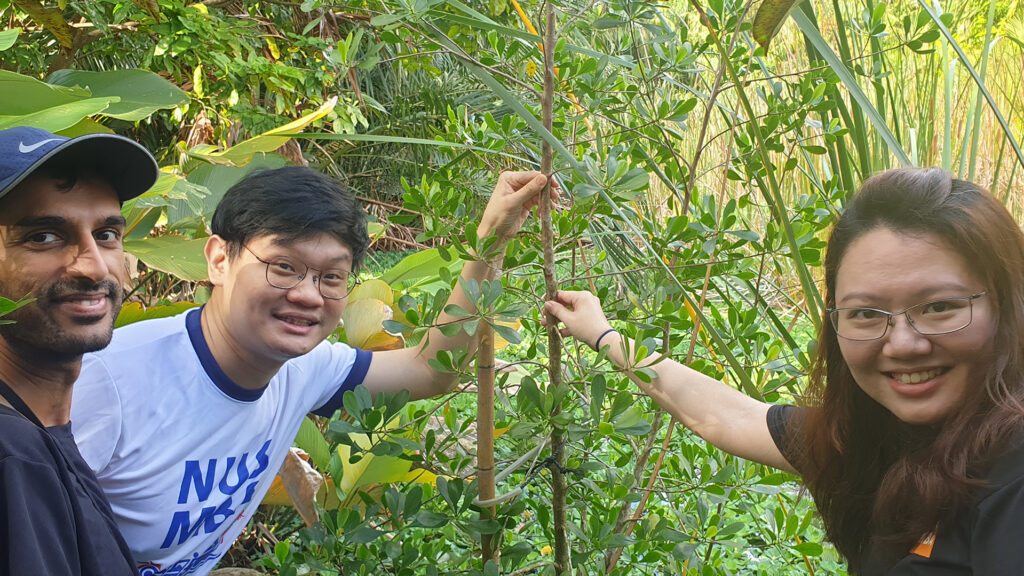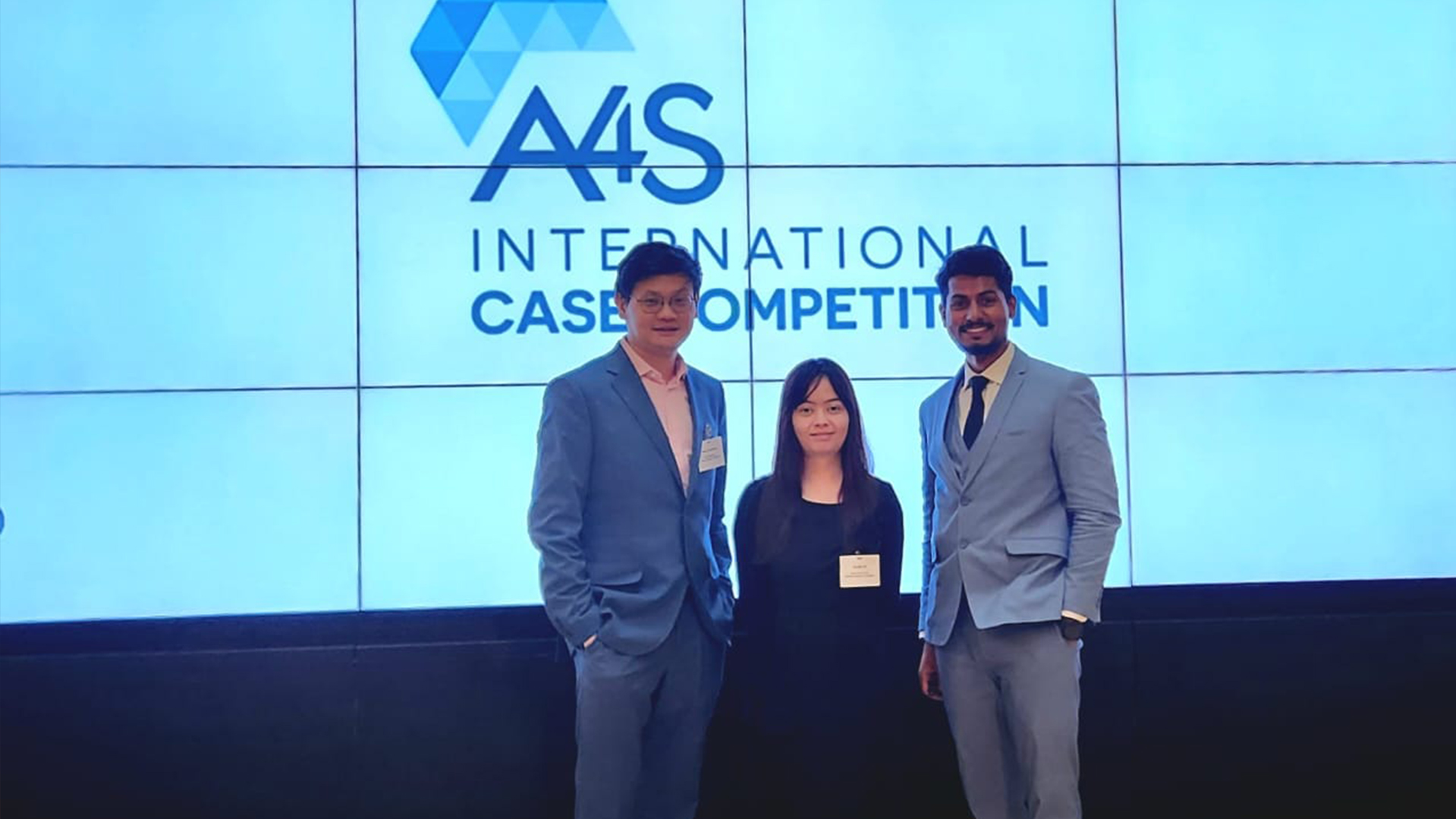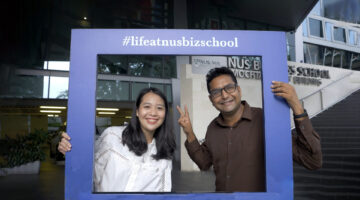Accounting For Sustainability Case Competition 2023
Jointly organised by NUS MBA’s very own SEI Club and the Rotman Net Impact Club from the Rotman School of Management, University of Toronto, the Accounting For Sustainability Case Competition (A4S) 2023 saw five teams of finalists pitching their ideas in the finals which took place on 25 March 2023. Nature-based Solutions was the theme of the competition.
We speak to Team NUS MBA, consisting of Allan Loi, Shyam Gupta, Purvil Khakharia and Tang Su Yen, as they share more about their experience and advice for fellow classmates looking to join similar case competitions.
1. How was your preparations like leading up to the competition?
Our team came together as a result of our interest to contribute to the sustainability cause, as well as the opportunity to create new ideas to protect biodiversity in Southeast Asia.
We met up several rounds prior to the preliminary round, trying to conceptualise the best way we can create a resilient business model to support the biodiversity cause. We initially thought about ideas such as use of drones to plant Mangrove seedlings, or utilising smart trash collectors to clear plastic waste from the terrestrial ecosystem.
We eventually ended up working on a theme: “Forging Community Participation to restore Mangrove forests with Sustainable Harvesting Methods”.
Most of our meetings were held in the evenings over zoom, some of which could end close to midnight. After we got past the semi-finals, we went into ‘cold-calling’ mode, approaching many non-profit organisations and private retailers to provide feedback on our model, as well as to give us information about their experiences at the ground level. We eventually managed to engage with eight reputable organisations for consultation. Overall, it was a tiring journey but a very rewarding experience.
2. Did you apply any learnings from your NUS MBA courses, or knowledge and experience gained both inside and outside of the classroom in this competition?
Learnings from our NUS MBA courses helped quite a bit. The business models and financial analysis tools learned during our first semester contributed to at least 30% of what we presented during the finals.
We also practiced our pitch with fellow MBA classmates to get new perspectives, as well as friendly advice on the gaps and potential opportunities that are not apparent to the team.
3. Describe the work that was submitted and presented for this competition. How did you think your work stand out, compared to the rest?
Our submission was one of the more nature-based solutions to drive long-term sustainability growth, which we believe brought us to the finals. We advocated for the importance of saving Mangroves as a key enabler of carbon reduction efforts and worked out a business plan to sell sustainable dyes to retailers with partnerships from wood collectors, fashion brands, governments, as well as efficient technology to produce dyes for mass production.
The revenue earned from selling of the dyes are envisioned to be distributed back to hydrological restoration and community benefit sharing.

4. What were the valuable lessons learned through your participation in this competition?
Planning for a business is time consuming but rewarding. A word of advice is to start early, as ideation and financial models can evolve quickly with several rounds of iteration in the planning process.
A memorable takeaway is how several inquisitive minds following a single cause or interest can lead up to the development of solutions that have the potential to impact livelihoods and climate reduction efforts.
Also, do leverage on NUS network across different faculties and institutes as they are very well connected.
5. Any piece of advice to fellow classmates who are looking to join similar case competitions?
We recommend classmates to look out for similar competitions as early as June/July each year, in order to plan for your schedules effectively and enrol in these competitions in time before their deadlines, many of which are scheduled from October to January the following year. Also, it’s advisable to find dedicated people and form a team who will stick together through the journey.


